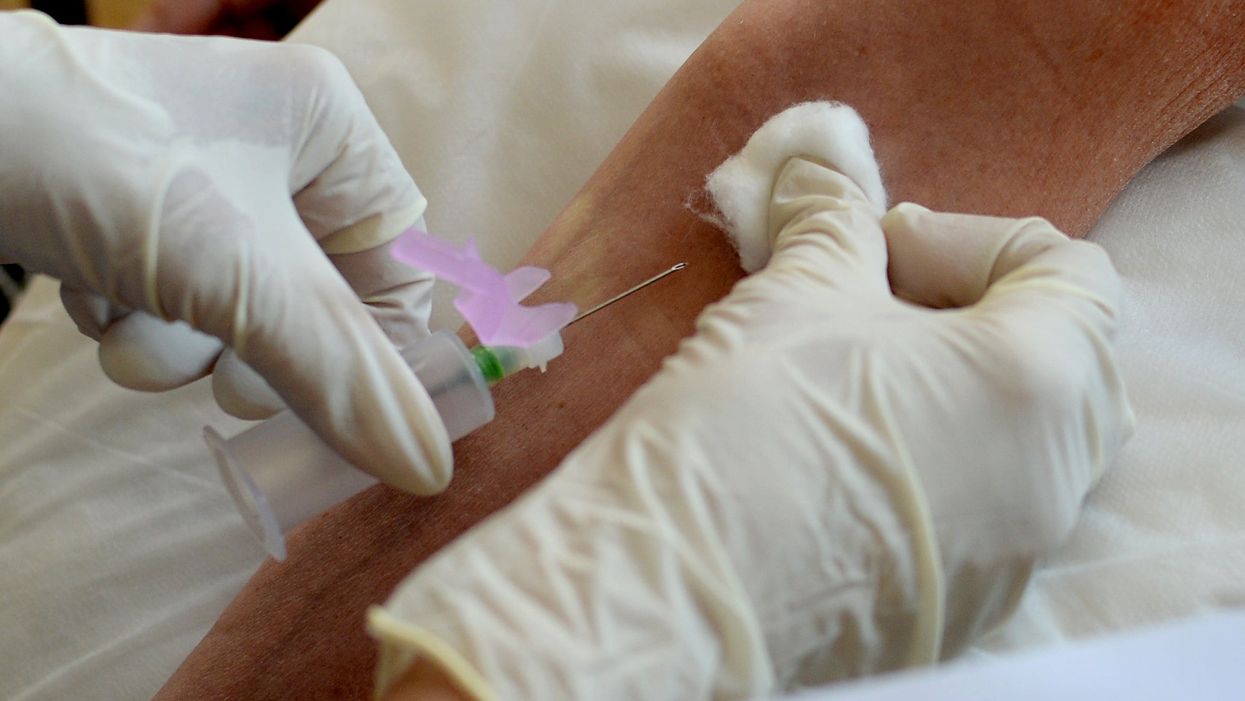
Blood test
A simple blood test that can detect more than 50 types of cancer before any clinical signs or symptoms of the disease is accurate enough to be rolled out as a multi-cancer screening test, according to scientists.
The test, which is also being piloted by NHS England is aimed at people at higher risk of the disease, including patients aged 50 years or older.
It is able to identify many types of cancer that are difficult to diagnose early, such as head and neck, ovarian, pancreatic, oesophageal and some blood cancers.
These data suggest that, if used alongside existing screening tests, the multi-cancer detection test could have a profound impact on how cancer is detected and, ultimately, on public health
Scientists said their findings, published in the journal Annals of Oncology, shows the test accurately detects cancer, often before any signs or symptoms, while having a very low false positive rate.
Dr Eric Klein, chairman of the Glickman Urological and Kidney Institute, Cleveland Clinic, Cleveland, US, and first author on the paper, said: “Finding cancer early, when treatment is more likely to be successful, is one of the most significant opportunities we have to reduce the burden of cancer.
“These data suggest that, if used alongside existing screening tests, the multi-cancer detection test could have a profound impact on how cancer is detected and, ultimately, on public health.”
The test, developed by US-based company Grail, looks for chemical changes in fragments of genetic code – cell-free DNA (cfDNA) – that leak from tumours into the bloodstream.
Scientists investigated the performance of the test in 3,537 people – 2,823 people with cancer and 1,254 people without.
It correctly identified when cancer was present in 51.5% of cases, across all stages of the disease, and wrongly detected cancer in only 0.5% of cases.
In solid tumours that do not have any screening options – such as oesophageal, liver and pancreatic cancers – overall sensitivity (the ability to generate a positive result) of the test was twice (65.6%) as that for solid tumours that do have screening options, such as breast, bowel, cervical and prostate cancers.
Meanwhile, the overall sensitivity in cancers of the blood, such as lymphoma and myeloma, was 55.1%.
The test correctly also identified the tissue in which the cancer was located in the body in 88.7% of cases.
Dr Klein said: “We believe that cancers that shed more cfDNA into the bloodstream are detected more easily.
“These cancers are also more likely to be lethal, and prior research shows that this multi-cancer early detection test more strongly detects these cancer types.
“Cancers such as prostate shed less DNA than other tumours, which is why existing screening tests are still important for these cancers.”
Meanwhile, the results of NHS Grail pilot, which is due to start in autumn 2021 and will include 140,000 participants, are expected by 2023.
Professor Peter Johnson, national NHS clinical director for Cancer, said: “This latest study provides further evidence that blood tests like this could help the NHS meet its ambitious target of finding three-quarters of cancers at an early stage, when they have the highest chance of cure.
“The data is encouraging and we are working with Grail on studies to see how this test will perform in clinics across the NHS, which will be starting very soon.”













